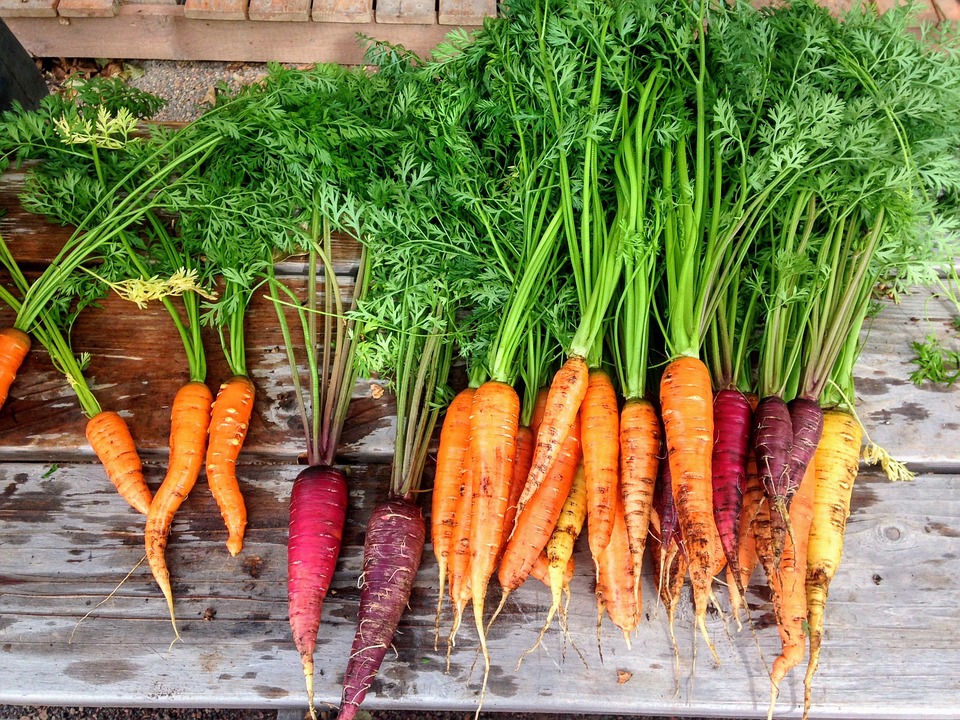Unleashing the Potential: How Sustainable Farming is Reshaping the Food Industry
Picture this: a cozy farmhouse nestled amidst rolling hills, sunlight filtering through the windows, and the earthy scent of soil wafting through the air. Here, in the heart of sustainable farming, lies a world of boundless possibilities. I have been fortunate enough to experience the beauty of this lifestyle firsthand, witnessing how sustainable farming practices have the power to reshape the food industry as we know it. Today, I invite you on an enlightening journey as we explore the incredible potential and positive impacts of sustainable farming.
Sustainable farming, also known as regenerative agriculture or agroecology, embodies a holistic approach to food production. It revolves around utilizing techniques that nurture the land instead of depleting it, fostering biodiversity, and minimizing harm to the environment. As we become increasingly aware of the detrimental effects of industrial farming practices, sustainable agriculture emerges as a guiding light, offering a path towards a more vibrant, resilient, and healthy food system.
One of the primary reasons why sustainable farming is gaining traction is its unwavering commitment to ecological harmony. By integrating natural methods such as crop rotation, cover cropping, composting, and organic pest control, sustainable farmers work in harmony with nature, avoiding the need for synthetic pesticides, herbicides, and genetically modified organisms (GMOs). This not only ensures a healthier end product for consumers but also helps preserve the integrity and vitality of the soil, which serves as the foundation of our food chain.
Furthermore, sustainable farming practices are inherently climate-smart. In a world grappling with the global climate crisis, these methods hold immense potential for mitigating the adverse effects of agriculture on our environment. Through techniques like carbon sequestration, agroforestry, and holistic grazing, sustainable farmers actively contribute to reducing greenhouse gas emissions and promoting long-term sustainability. By nurturing the Earth and recognizing the pivotal role agriculture plays in climate change, sustainable farmers are transforming the food industry into an ally in the battle against climate change.
But the impressive impacts of sustainable farming don’t stop there. By focusing on local and regional food systems, these farmers enable communities to become more self-reliant when it comes to their food supply. Instead of relying on vast networks of transportation, which contribute to carbon emissions and the loss of nutritional value, sustainable farmers prioritize building resilient local economies. This means consumers have access to fresher, tastier, and more nutrient-dense produce, while small-scale farmers gain a sustainable livelihood.
Not only does sustainable farming revolutionize the production side of the food industry, but it also extends its transformative touch to the culinary world. Farm-to-table movements, farmers’ markets, and CSA (Community Supported Agriculture) programs have gained significant popularity in recent years, promoting the direct connection between producers and consumers. This direct relationship has profound benefits for both parties involved. Consumers enjoy a personal connection with the food they eat, fostering a deeper appreciation for its origin and the effort put into its cultivation. Farmers, on the other hand, find immense satisfaction in sharing the fruits of their labor and receiving direct feedback from those who savor their produce. Undoubtedly, this fosters a vibrant, collaborative spirit that breathes new life into the entire food industry.
Pro Tips for Embracing Sustainable Farming Practices:
1. Start small: If you’re new to sustainable farming or gardening, don’t feel overwhelmed by the prospect of transforming your entire backyard into a farm overnight. Begin with small steps, like planting a few herbs or vegetables in containers, and gradually expand your endeavors as you grow more confident and knowledgeable.
2. Embrace biodiversity: Cultivating a diverse range of crops not only promotes healthy ecosystems but also reduces the risk of crop failure due to pests or diseases. Experiment with heirloom varieties, companion planting, and intercropping to create a harmonious and resilient garden.
3. Compost, compost, compost: Let your kitchen scraps and garden waste work their magic by transforming them into nutrient-rich compost. This “black gold” will not only provide essential nourishment for your plants but also reduce your reliance on synthetic fertilizers, closing the loop on sustainable farming.
4. Educate yourself and others: Sustainable farming is a constantly evolving field, with new research and techniques emerging regularly. Stay informed about the latest practices, attend workshops or webinars, and engage in dialogues with fellow gardeners and farmers. Sharing your knowledge and experiences can spark a ripple effect that ignites change within your community.
As we bring our exploration of sustainable farming to a close, it becomes evident that this method of food production has the power to revolutionize the very core of the food industry. Its holistic approach not only allows us to reconnect with the land, but also empowers us to make conscious choices that benefit both ourselves and the environment. Every individual who embraces sustainability, whether by cultivating a small urban garden or supporting local farmers, becomes a catalyst for positive change. So, let us unleash the potential of sustainable farming and shape a food industry that nourishes both our bodies and our planet. The seeds of transformation have been sown – it’s time to harvest the possibilities!



